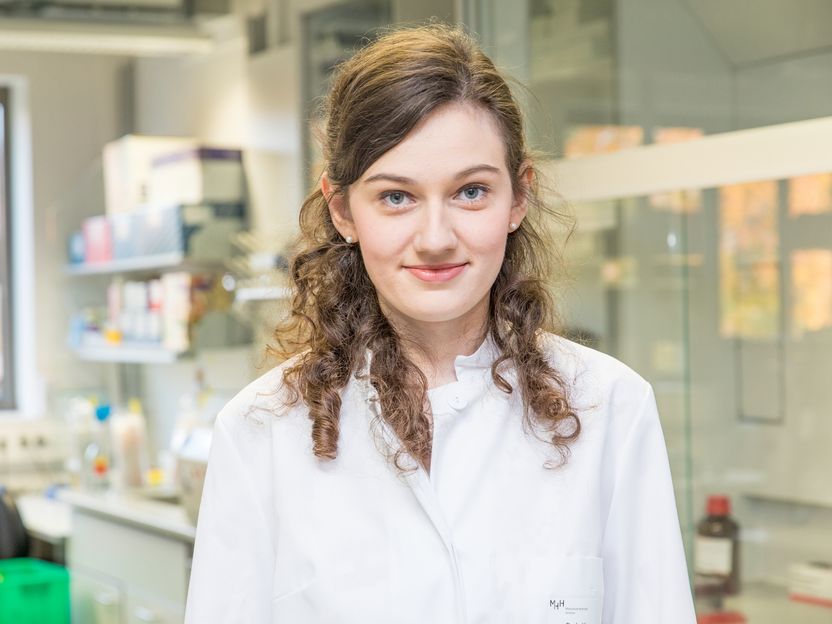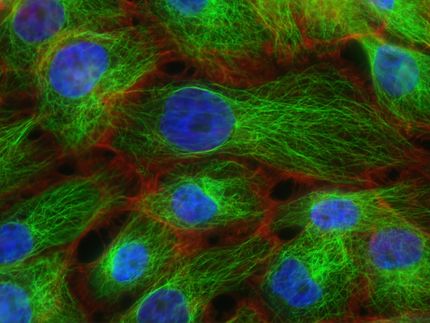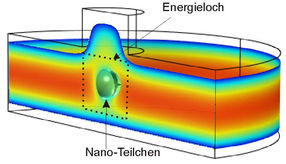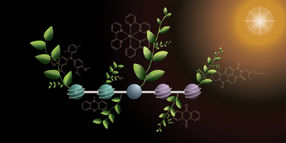Outstanding research on cancer resistance
Laura Hinze receives Paul Ehrlich and Ludwig Darmstaedter Prize for Young Researchers
Advertisement
The 24-year-old physician Dr. Laura Hinze from Hannover Medical School receives the Paul Ehrlich and Ludwig Darmstaedter Prize for Young Researchers 2022, as announced by the Scientific Council of the Paul Ehrlich Foundation. Laura Hinze is being honoured for her significant contribution to the understanding of signal transduction in cancer cells. She has discovered how leukaemia cells develop resistance to the chemotherapeutic agent asparaginase, thereby presenting a novel target for the treatment of acute lymphoblastic leukaemia (ALL), the most common cancer in children. Her discovery also derives a new approach for the treatment of colorectal cancer and other solid tumours.
Unlike normal body cells, leukaemia cells are not able to produce sufficient amounts of the amino acid asparagine. They have to import asparagine. Because the enzyme asparaginase catalyses the degradation of asparagine, its injection drastically reduces the extracellular supply of this amino acid. Consequently, leukaemia cells die from this depletion, while normal body cells are not harmed. However, leukaemia cells can learn to evade the effect of asparaginase.

Dr. Laura Hinze
© Medizinische Hochschule Hannover (MHH)
To find out how this happens, Dr. Laura Hinze and her group used CRISPR/Cas9 gene scissors to systematically switch off around 19,000 genes in a culture of resistant ALL cells – only one in each cell – and observed what happened when they treated the cells with asparaginase. A culture to which only a buffer solution was added served as a control. In the culture treated with asparaginase, those cells in which one of the two genes NKD2 or LGR6 had been switched off, died particularly frequently. They had apparently lost their resistance. Conversely, this indicated that cells in which these genes function become resistant particularly frequently. Hinze and her team demonstrated that both genes code for inhibitors of the Wnt signalling pathway.
In the healthy organism, this signalling pathway is responsible for embryonic development and later for tissue repair and maintenance. Its untimely activation favours the development of cancer. This is mainly due to an excessive amount of the protein ß-catenin, which carries growth impulses into the cell nucleus. When the Wnt signalling pathway is inactive, the excess ß-catenin is marked for degradation with ubiquitin molecules. Central to this labelling work is the enzyme glycogen synthase kinase 3 (GSK3). It ensures that ß-catenin is fed to the proteasome, where it is broken down into small fragments and amino acids like all proteins that could harm the cell or that it does not need. It is from this source that the leukaemia cell fetches the asparagine of which it has been deprived of by treatment with asparaginase. Through a partial activation of the Wnt signalling pathway, which blocks the degradation of ß-catenin without spurring its potentially oncogenic signals, Hinze and colleagues succeeded in largely drying up this source of resistance. The same effect they achieved by selective GSK inhibition. Leukaemia mice that received both asparaginase and GSK3 inhibitors survived much longer than those treated with asparaginase alone.
Mutations in the Wnt signalling pathway that led to its overactivation are characteristic for many colorectal cancers. Hinze therefore examined to what extent her research results could be transferred to this second most common of all cancers. Her initial hypothesis: 15 percent of all Wnt signalling pathway mutations in colorectal cancer lie upstream of the enzyme GSK3. In patients with this genetic signature, the enzyme is thus endogenously inhibited. The proteasome no longer supplies asparagine. If one depletes asparagine additionally by administering asparaginase, one could starve the colon cancer cells. Laura Hinze and her group have now preclinically proven this hypothesis. It could also apply to other solid tumours that are characterised by a Wnt-induced endogenous inhibition of GSK3.
The prize will be awarded - together with the main prize 2022 and the prizes of the year 2021 - on 14 March 2022 at 5 p.m. by the Chairman of the Scientific Council of the Paul Ehrlich Foundation in Frankfurt's Paulskirche. Due to the pandemic, the number of available seats is limited. The event will be broadcast via livestream.




























































